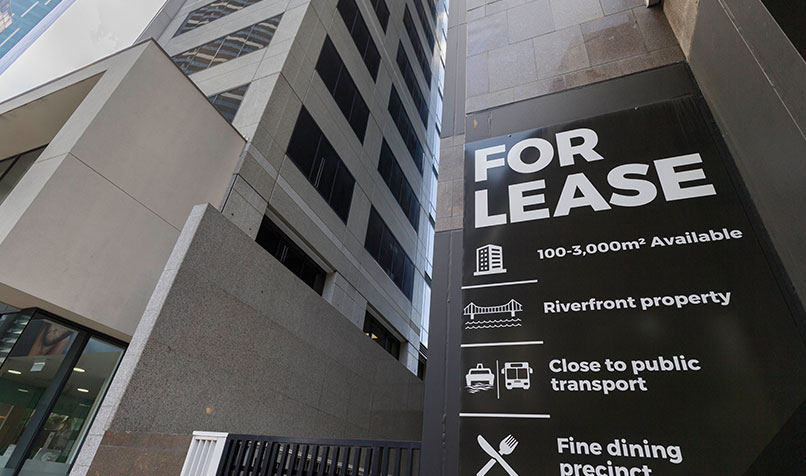Loading component...
At a glance
- Virtually every company renting or leasing assets must comply with IFRS 16 when preparing financial statements this year.
- The new requirements eliminate nearly all off-balance-sheet accounting for lessees, the aim of enhancing transparency and comparability in financial reporting.
- The reporting changes will have an impact on business models, process and industries, and it is important that companies be adequately prepared to meet the new requirements.
Many accountants are embarking on a serious game changer this year.
For many, it is the first reporting season when the new International Financial Reporting Standard – IFRS 16: Leases – will have an impact, and it comes with the added challenge of implementing new reporting requirements in the midst of economic uncertainty.
Virtually every company using rentals or leasing as a means of accessing assets must comply with IFRS 16 when preparing financial statements this year.
Bringing almost all leases on balance sheet – through recognising a right-of-use asset over the term of the lease and a corresponding lease liability – carries a number of implications that have not been fully appreciated as yet.
What we do know is that this radical new approach will affect many commonly used financial ratios and performance metrics such as gearing, current ratio, asset turnover, interest cover, EBITDA, EBIT, operating profit, net income, EPS, ROCE and ROE.
Transparency and comparability
The new requirements eliminate nearly all off-balance-sheet accounting for lessees, with the aim of enhancing transparency and comparability in financial reporting. These changes may also affect loan covenants, credit ratings and borrowing costs, and could alter stakeholder perceptions.
A possible risk of bringing the balance sheets of businesses with leased assets in line with those that have chosen to buy assets is the reassessment of certain lease versus buy decisions. In light of IFRS 16, there is a huge emphasis on companies being adequately prepared for the changes and any implications they may have, not just on accounting, but also on business models, processes and their industry at large.
The knock-on implications go beyond the impact on accounting professionals. For example, those running supply chains will be affected, as will property teams, which may need to consider renegotiating or restructuring existing and future leases. The changes will extend to almost every other business process in between, plus key external stakeholders and investors.
Interestingly, although lessor accounting remains largely unchanged under IFRS 16, lessors could also witness an impact on their business models and lease products if clients’ business needs and behaviours change.
Everything changes
The most significant, direct and immediate impact will be on a lessee’s financial reporting, asset financing, systems, processes and controls. For starters, Andrew King, partner for CFO Advisory with KPMG, says “IFRS 16 requires companies to transform their business processes in many areas, including not only finance and accounting, but also potentially IT, procurement, tax, treasury, legal, operations, corporate real estate and even HR”.
Given that a number of leases are going on balance sheet for the first time for many large businesses in Australia, King says companies will require significantly more data around their lease arrangements than before.
"IFRS 16 requires companies to transform their business processes in many areas, including not only finance and accounting, but also potentially it, procurement, tax, treasury, legal, operations, corporate, real estate and even HR."
King adds that management will also have the challenge of obtaining sufficient data to comply with the IFRS 16 requirement of having to separate lease and non-lease components and then allocating the consideration to these separate components.
“This will require management’s judgement when identifying those components and applying estimates to determine the observable standalone prices,” King advises. “Similarly, determining the lease term will also require judgement when recognising a right-of-use asset and lease liability – based on the likelihood of exercising options in the lease.”
Considering the added complexity of trying to second-guess how commercial leases will be renegotiated amid the current business disruption, it is hardly surprising that some companies are favouring outsourcing the task of accounting for leases over dealing with it in-house.
Key challenges

Marina Shu, associate director – IFRS advisory at KPMG Australia, says one of the typical, upfront challenges facing companies is building a complete view of the population of leases, especially where operations are decentralised. While accuracy of data capture around lease terms, discount rates and options under the contract are equally important, so too, adds Shu, is the need to regularly monitor these factors going forward.
King explains that in an attempt to provide accurate and timely reporting to key stakeholders, some companies are likely to look for market solutions that automate calculations and journal entries. In the absence of any precedent in dealing with the new standard, King suspects it may take up to 12 months or more for companies to iron out complexities – especially around lease portfolios and measurement – as they move through the initial audit period.
According to KPMG research, at present, companies are at different levels of preparedness in terms of implementation.
King emphasises the importance of implementing appropriate processes and controls for ongoing compliance, with the aim of compliance becoming business as usual. He acknowledges that this depends on the nature of the business and its reporting needs.
Different industries and sectors may experience varying levels of impact when adopting the new leases standard. According to Shu, this is due to the different types of assets commonly leased in specific sectors, and the financial arrangements governing them.
Entities that lease big-ticket assets such as real estate, manufacturing equipment, aircraft, trains, ships and technology can expect the greatest impact – the standard offers an exemption for low-value assets such as PCs, office furniture and mobile phones. As a case in point, the new standard will have a much greater impact on the financial statements and key ratios of airlines, given how integral leases are to their business models.
CPA Australia resource:
Do the benefits justify the added complexity?
While the requirements now result in new assets and liabilities on balance sheet, Thomas Egan FCPA, accounting technical expert with Geneva-based International Air Transport Association (IATA), says reporting the information adds layers of complexity for airlines.
Given that the information is now less comparable than when multiples of lease expense were applied, Egan is witnessing broad uncertainty among preparers and users over whether IFRS 16 actually improves financial information.
“There are so many diametrically different judgements and assumptions made in assessing a lease arrangement, that the information reported can vary significantly,” Egan says.
“It’s unclear whether the additional information provided has justified the cost burden to preparers.”
As an added complication, Egan says the need for extra data to meet IFRS 16’s requirements could not have come at a worse time, with entities’ key personnel currently furloughed, terminated or working remotely due to COVID-19.
However, he says the International Accounting Standards Board (IASB) has issued an amendment that provides some relief when accounting for rent concessions granted in relation to COVID-19.
Issued on 28 May 2020 for immediate adoption, the IFRS 16 amendment exempts entities from a requirement to determine whether rent concessions are a lease modification. As a result, these entities can potentially avoid the burden of assessing and re-measuring the asset/liability calculations for leases that have benefited from pandemic-related rent concessions.
“Although this is a welcome blessing, the need to impairment test the right-of-use asset during the duration of this crisis remains a burden on finance teams,” Egan says. “While IFRS 16 created these assets, under the previous standard, lease contracts would have still been subject to a similar assessment for onerous contracts.”
Given the large number of entities that have very little visibility in relation to future revenue, Egan suggests using historical data along with best, worst and base-case scenarios. Probability factors would then be applied to each of the three scenarios to create an outlook for both the near and long term, to facilitate the impairment exercise.
However, Egan cautions against choosing a worst-case scenario. This will reduce asset values excessively, only to then reverse those write-downs in future periods, giving the appearance of great profitability. “This is bad accounting and misleading information, even if others may find it conservative.”
IFRS 16 Leases: a win-win?
Entities bear the cost of transition, but research commissioned by CPA Australia with the University of Melbourne and Monash University, reveals long-term benefits.
Enhanced lease management is driven by the necessity for entities to be more diligent in maintaining an, entity-wide, comprehensive register of leases. Investors are also lauding the benefits of enhanced transparency and comparability around leverage and return on capital employed.
However, in the transition, historical trend analysis and the interpretation of EBITDA are hampered as investors adapt to the new reporting regime.
The final report will be published later this year.

